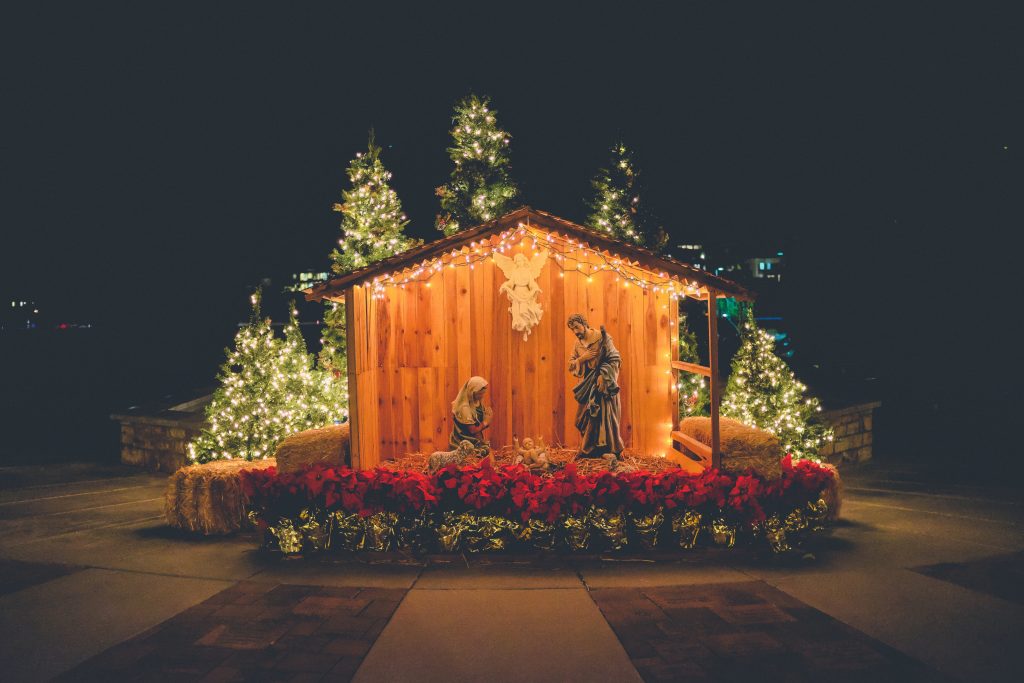
One of the key pursuits in Biblical Studies is discerning the central theme of the Bible. In Biblical Theology, which is essentially the study of the Bible as literature, this question is the end of the entire discipline, the goal toward which all the other work is pointing. In German scholarship it’s called the Mitte, or center.
Over the years several candidates have been suggested. A popular one is “kingdom”: Thurman Wisdom and Thomas Schreiner have both recently favored this idea in one form or another. Another popular suggestion is “covenant,” suggested influentially a century ago by Walther Eichrodt. And recently Peter Gentry and Stephen Wellum have combined the two ideas.
For a time I toyed with the idea of “Messiah” as the central theme. I noted that the Hebrew Canon has three parts—the Law, the Prophets, and the Writings—each of which introduces us to offices (priest, prophet, and king, respectively) that were filled by disappointing people, all anticipating the perfect Prophet, Priest, and King who would lead without disappointment. He was, of course, the Messiah, the Anointed One—and all of these offices typically involved anointing.
I think that’s a defensible suggestion for a central, governing theme; it seems comprehensive, with good explanatory power for all the biblical contents.
But lately I’ve been meditating on another possibility, a theme that has been observed and commented on by a number of other students of the Word.
It’s the idea of God dwelling with, among, his people.
I’d like to spend a few posts tracing that idea through the Scripture.
__________
We begin, of course, in Genesis, in the primeval history. The first thing we learn is that God is the author of creation; he made all things (Ge 1.1). Later in that first chapter we see him creating the first humans and distinguishing them from the other living creatures: they are in the image of God (Ge 1.26-27). In fact, rather than just speaking them into existence, as he had other living things (Ge 1.11-12, 20-21, 24-25), he intervenes personally, seemingly physically, to form Adam from the dust of the ground (Ge 2.7) and then to form Eve from one of Adam’s ribs (Ge 2.21-22). This seems much more intimate, much more personal, than the way he created the animals. Along the way we hear God give Adam and Eve dominion over all the earth (Ge 1.28), intending them to use plant life for their sustenance.
Now, I need to deal with a misconception. I suppose this misconception was most artfully rendered in James Weldon Johnson’s God’s Trombones:
And God stepped out on space,
And he looked around and said:
I’m lonely —
I’ll make me a world.
Johnson’s work is worthwhile reading by every American for its cultural and historical significance, its lyricism, its artistry. It is a remarkable piece of literature.
But God was not lonely.
God is, and always has been, completely satisfied in himself. There is no lack, no need, no shortcoming in him.
And thus he did not need to make us.
And yet, he wanted to.
Why? If he didn’t need us, why did he make us at all?
We get a tiny, possible hint shortly later in the narrative. Adam and Eve have sinned (Ge 3.6) and then tried to cover their newfound shame (Ge 3.7), and
they heard the voice of the Lord God walking in the garden in the cool of the day (Ge 3.8).
Now, we’re not told that this had been a daily practice. Perhaps God, knowing that his creatures have sinned, is coming to announce their judgment (Ge 3.16-19)—and their eventual glorious deliverance (Ge 3.15).
But this does speak of God desiring to be in company with Adam and Eve—perhaps even to walk with them in the beauty of the Garden, to point out its delights, to savor the wonder and joy in their faces as they realize what he has given them.
Of course, sin has changed all that.
But even so the fellowship continues. Just two scant chapters later, we find Enoch “walk[ing] with God” (Ge 5.22), and in the next chapter, Noah doing the same thing (Ge 6.9).
God wants to fellowship with his people, to interact with them in loving and friendly and intimate ways.
From the beginning it has always been so.
And as the story continues, the evidence will continue to accumulate.
Next time, from a family to a nation.
Part 2: Covenant | Part 3: Marriage | Part 4: Turning the Page | Part 5: Forever


